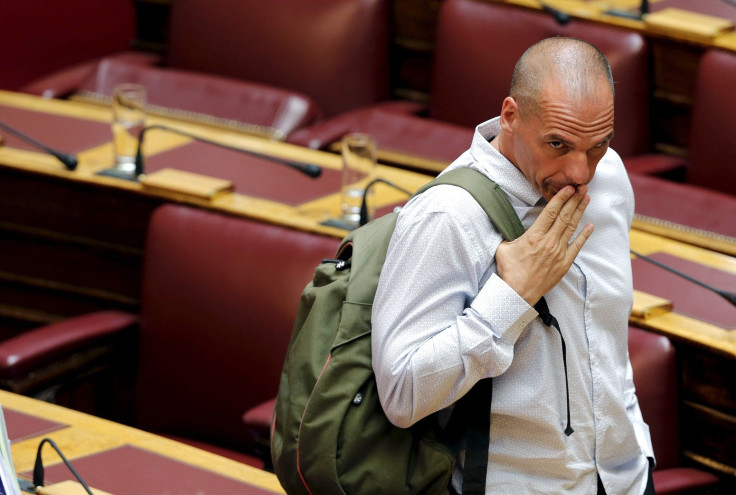Greece PM Alexis Tsipras Approved Top Secret Drachma Plan, Ex-Finance Minister Yanis Varoufakis Says

Greece Prime Minister Alexis Tsipras was prepared to raid central bank reserves and hack into the citizens’ tax codes to bring back the drachma. Former Finance Minister Yanis Varoufakis confirmed the leftist party Syriza’s top-secret plan, claiming it was just a contingency plot in case the country was kicked out of the Eurozone.
Varoufakis, who was forced to resign from his position earlier in July, outlined the secret plan to London-based Official Monetary and Financial Institutions Forum. In the conference call, the economist claimed Mr Tsipras gave him the go signal to come up with a “Plan B” before he took office in January. The PM apparently assembled a team of five to work on the hush-hush plan.
As heard in the 24-minute tape, which was recorded on July 16 but released on Monday, Varoufakis admitted they were planning to covertly reserve accounts attached to tax file numbers. While the move would be euro-dominated, it would turn to the new drachma “at the drop of a hat.”
The group would devise a parallel payment system operating using wiretapped tax registration numbers. This could eventually work as a parallel banking system that could operate if the banks were forced to close. Varoufakis said he hired a childhood friend, who is an I.T. expert and a professor at Columbia University, to hack into the general secretariat.
Mr Tsipras gave them the green light to prepare the plan in December, a month before he was elected into office, but he did not issue the final approval to proceed with the implementation. Varoufakis also accused German Finance Minister Wolfgang Schaeuble of forcing a “Grexit,” or forcing Greece to leave the Eurozone. The German minister apparently believed that a Grexit would equip him with bargaining and terrorising power to impose upon the French.
When one of the teleconference hosts cautioned him that they were others who were listening to the call, Varoufakis confidently replied, “I know they are. Even if they do, I’ll deny it.”
Meanwhile, he downplayed the recording, saying the media have “indulged in far-fetched articles that damage the quality of public debate.” He defended his comments as necessary. “Greece’s Ministry of Finance would have been remiss had it made no attempt to draw up contingency plans,” he wrote on his blog.
Greece almost stumbled out of the Eurozone earlier this month after a couple of failed negotiations with the European lenders. The new agreement, forged on July 13, allows Greece to get a loan from 82 to 86 billion euros [AU$123 to 130 billion] in exchange for the implementation of austerity measures in the country.
Varoufakis was forced to resign on July 6, claiming he was standing down after pressure from European leaders. He vowed to quit as finance minister if the country voted “yes” to the bailout referendum. The “no” vote won.
Contact the writer at feedback@ibtimes.com.au, or let us know what you think below.





















